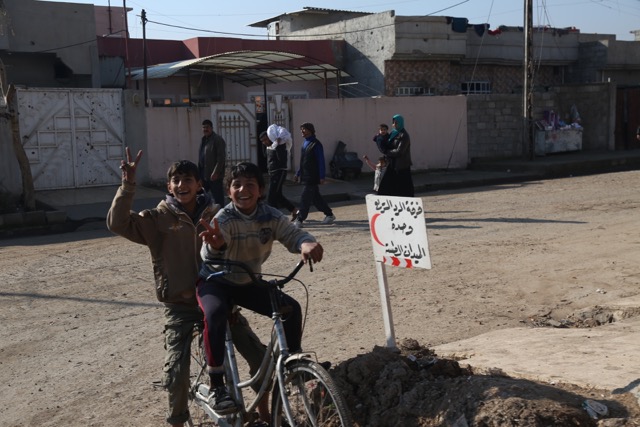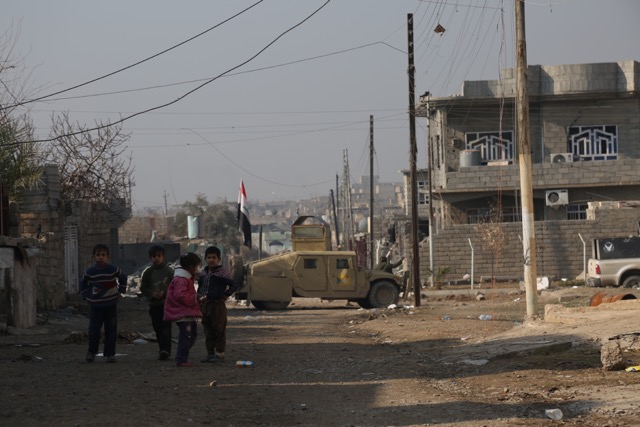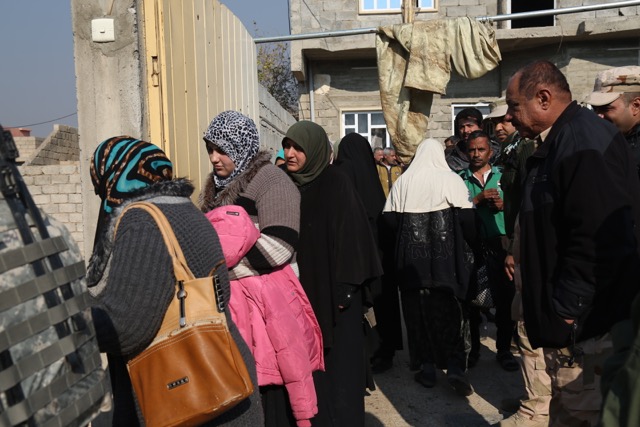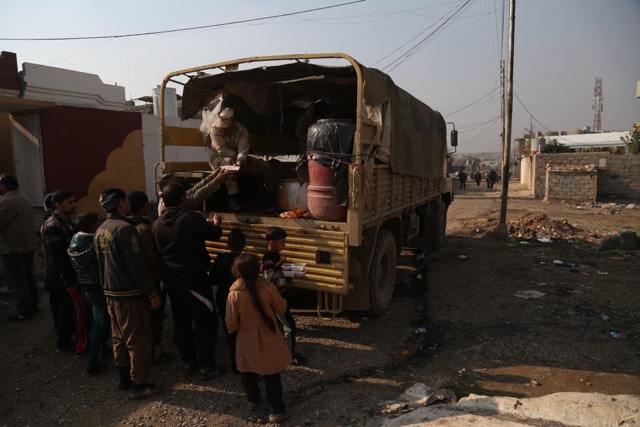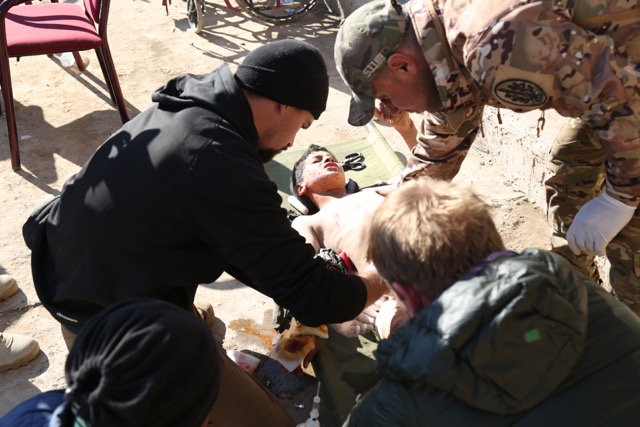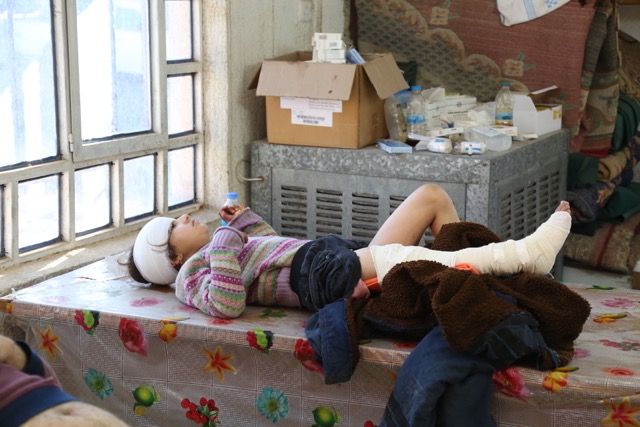Giving a Hot Meal in Mosul: Small Steps to a Better Future?
January 22, 2017
Antisar, Mosul, Iraq
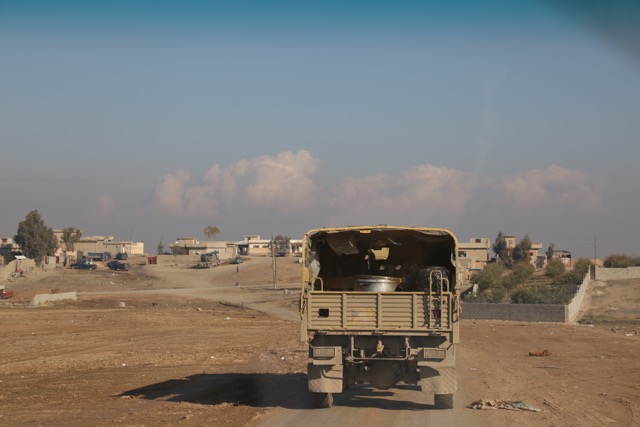
Antisar, in the southeast of Mosul city, is a maze of low, walled buildings connected by narrow streets. It was recently liberated from ISIS by the Iraqi Army but the people living there – and there are many – still walk around in fear of mortar and sniper fire. While there is some access to outside supply chains for many of the people, the Iraqi Army is for many a lifeline for survival – not just because of the security they provide from ISIS attacks, but because of medical care and supply provision.
Erbil, a modern, bustling city of about 1.5 million people, is less than two hours away. It is FBR’s supply source, for food, medicine and all kinds of equipment. Last week we teamed up with the 36th Brigade, 9th Armored Division, of the Iraqi Army to bring food to the people of Antisar. Having purchased a truck-full of raw items – including fresh vegetables, rice, oil and seasonings – we brought it to the 36th’s headquarters just outside the city. They cooked two giant pots of rice and one of tomato soup, put it in the back of a truck and drove the 30 minutes or so to Antisar. Once in the city, the army has created a maze to protect themselves from potential suicide car bombs – the route they travel winds through a series of blocked-off streets, bumping over medians, across what used to be sidewalks and over crater holes. Some blocks we drive by have been completely turned to rubble, while others appear untouched. Small children stand at the gates and flash the victory sign. A herd of goats crosses the alley in front of us, urged on by a young shepherd.
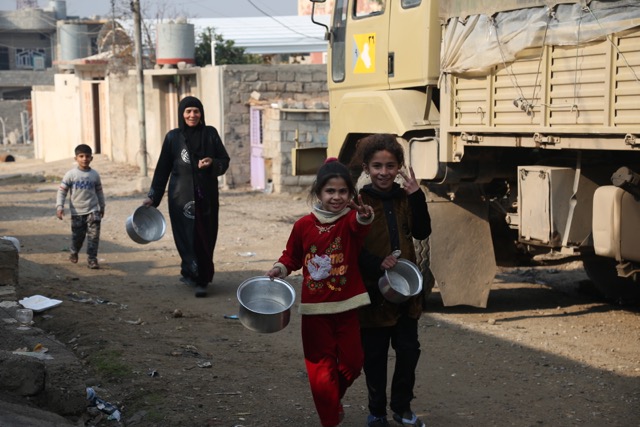
The street we eventually stop on seems unremarkable but the house we park in front of turns out to be a stopping place for a crowd of IDPs on their way out of the city. We dish out soup and rice in plastic dishes; women in burkas, men in sweatpants, kids – all line up for hot food. They eat quickly in the yard of the house and then walk on down the broken street towards what they hope is a place free of sniper bullets, suicide cars and air strikes – towards the border. There is still food left; as the IDPs trickle out, the people who aren’t leaving begin to come – they bring pots and bowls of their own – one young man says his family is 25 people. After these local residents are finished there is still food left and we drive about 10 minutes further into the maze to the local CCP – or Casualty Collection Point, where the soldiers have set up an emergency clinic in a school building and, along with some of our team, are treating men, women and children – most of the patients bleeding from shrapnel or bullet wounds, while others need primary care.
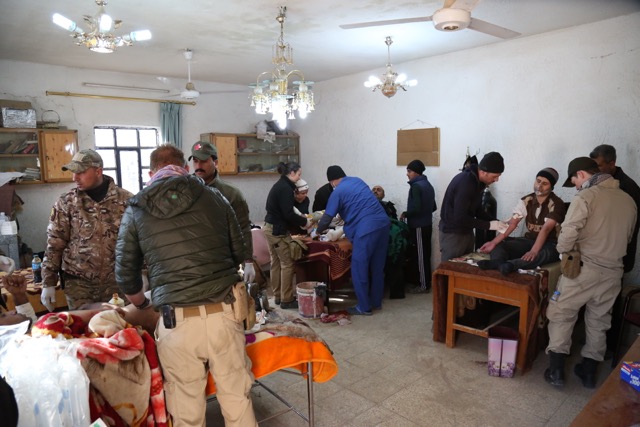
The rest of the food is given out to the families of patients, and the other local residents. With the food we bought, there is enough to do this kind of distribution for the next four days, feeding around 1200 people a hot meal.
The clinic is a window into the ever-present danger that stalks the people who stay in Mosul: a mom shows up with her lower leg mangled by shrapnel that also broke the bone; her husband and young son are also injured but walking, while her daughter cries – one whole family off to the hospital. Several people come who have been shot through the spine by a sniper and are paralyzed – a few more barely escaped paralysis. Many of the patients are the ones who survived, and they come to us consumed by grief over their son or daughter or wife who didn’t survive the blast that injured them. We help stop the bleeding, clean the wound, provide some pain medication, suture up small cuts, give comfort and support and pray with them. Then we send them on to what we hope will be an opportunity for better care, though the bleak medical situation here means that many people are turned away from overfilled hospitals. That’s all we can do.
That, and offer a hot meal. It’s not much but it is a counterpoint to the ever-present threat the people here live under, and we hope that it will be a ray of light that illuminates the possibility of a better life and better way forward.
